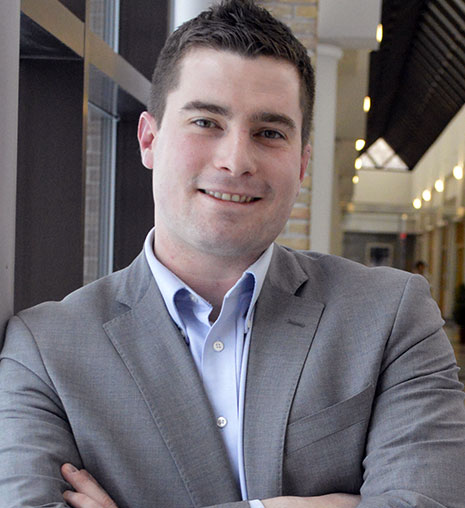Editor’s note: The first in a two-part series on how superintendents are preparing for budget cuts due to the coronavirus pandemic, while lobbying for financial relief from state and federal legislatures.
While students and teachers wrap up the final weeks of a school year like none the schools have experienced, Michigan education leaders are looking ahead. They face the unprecedented challenges of reopening safely this fall, while addressing bigger financial holes than they’ve ever imagined.
“Here’s the challenge,” said Chris Glass, director of legislative affairs for the West Michigan Talent Triangle. “We know that we need to have a safe environment for students to return to. The economy is not truly open until schools are open.”
Budget shortfalls could be far worse than experienced during the Great Recession over a decade ago when financial woes led to program cuts, staff layoffs and building closures.
“We are not talking about peanuts here, that is a big chunk of the budget.”
— Godfrey-Lee Public Schools Superintendent Kevin Polston

Reports by economists at the May 15 Michigan Consensus Revenue Estimating Conference — a biannual meeting where officials from the Michigan Treasury Department, Senate Fiscal Agency and House Fiscal Agency confer on revenue projections to be used by lawmakers in budgeting — indicated revenues collected for the Michigan School Aid Fund would fall $1.3 billion short of previous projections, meaning cuts to schools could amount to $700 per pupil.
Michael Shibler, in his 31st year as superintendent of Rockford Public Schools, said he’s never seen such a massive school funding crisis.
“In 52 years as an educator in Michigan, this, quite frankly, would be the worst impact on public school budgets that I have ever experienced,” Shibler said.
A cut of between $700 and $800 per student would cost Rockford up to $16 million over two years, out of a yearly budget of $86 million, he said, calling that “absolutely unacceptable.”
Glass, Shibler and 41 other superintendents within the West Michigan Talent Triangle have called upon legislators, Gov. Gretchen Whitmer and their congressional delegation to hold schools harmless — not cut funding — for the remainder of this year and next.
“We’ve been asked to execute remote learning plans and provide services throughout the closure, period. We were told by the state in doing so that we would continue to receive state funding and could not lay off employees,” Glass said. “A funding reduction now is not appropriate.”

What Cuts This Big Could Mean
The scope of cuts could be far-reaching and leave districts with bare-bones instruction. Imagine your school with no sports or athletic events, no music, no art, no after-school activities or events, no band or orchestra, no career and technical classes. Districts could be forced to prioritize only core academics (math, science, English/language arts, social studies), putting everything else at risk.
Grand Rapids Public Schools faces a potential cut of $10.5 million both in this school year and in 2020-21, said spokesperson John Helmholdt. While not citing specific programs, Helmholdt said anything from school closures and sales to cuts or elimination of programs and services could be on the table, in trying to make cuts “as far from the classroom as possible.” He added, “How do we do that in the face of this massive, historical budget cut that we’re facing?”

In West Michigan’s smallest district, Godfrey-Lee Public Schools, district leaders are looking at ways to trim $2.15 million — more than 9 percent — of its $23 million budget, to fill potential budget holes for this year and next.
While there are many unknowns and the district is creating several contingency plans, said Superintendent Kevin Polston, that amount is enough to pay for at-risk funding to support students with additional needs, the entire athletics and music program budget K-12, and 15 to 20 classroom teachers depending on their compensation, he said.
“We are not talking about peanuts here. That is a big chunk of the budget, he said.
School Leaders Lobby for Help
On a Zoom call Monday with other superintendents and three state legislators, Shibler told the lawmakers they need to prioritize K-12 funding over things like road improvements, and lobby Congress to provide more federal stimulus money to help school districts and local governments close their budget gaps. The state should also dip into its $1.2 billion “rainy day fund” to aid schools, he said.
“Here’s the challenge. We know that we need to have a safe environment for students to return to. The economy is not truly open until schools are open.”
— Chris Glass, director of legislative affairs for the West Michigan Talent Triangle

“I made it real clear districts cannot cut their way out of this,” Shibler said later, noting it’s too late in the school year to make substantial cuts in the current budget. “Where am I going to cut? I just have to absorb it.”
“Our elected officials need to put children first,” Shibler added. “We will fight hard to protect the interests of the children and families that we represent.”
Besides teaming with other superintendents and school lobbyists, Shibler said he’ll enlist advocacy from parents through Friends of Kent County Schools and in his weekly messages on the Rockford website. Legislators need to know it’s unjust to expect schools to make such “radical cuts” — especially after implementing state-ordered distance learning so rapidly, he said.
“To be faced with these kinds of draconian cuts, that’s just not right. There’s nothing right about it.”









